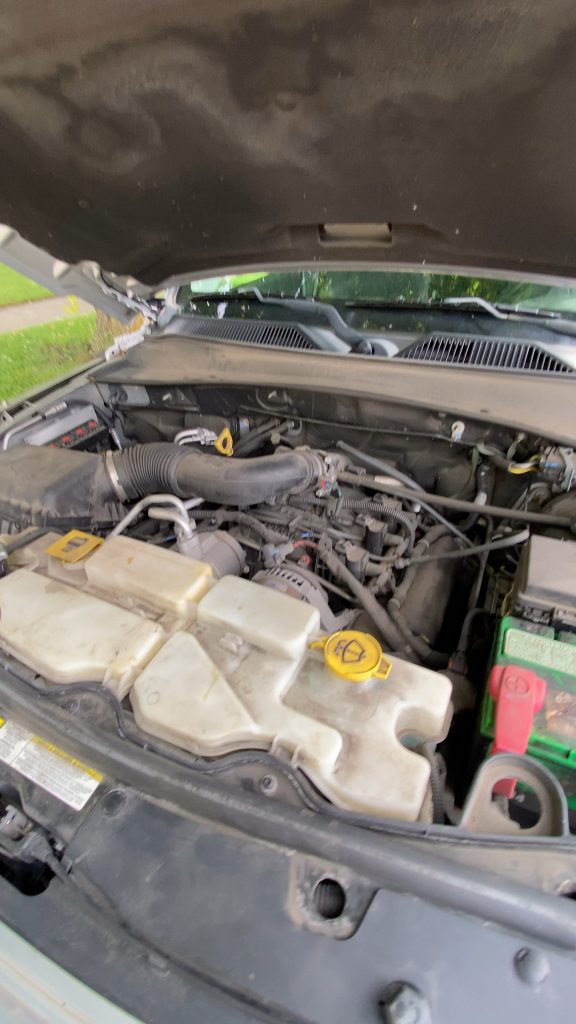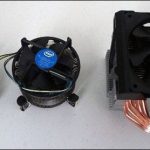Your Jeep is loud due to its rugged design and powerful engine. Off-road tires and aftermarket exhausts can also increase noise levels.
Jeeps are known for their robust build and off-road capabilities, making them inherently louder than typical vehicles. The powerful engine and rugged design contribute to this noise. Off-road tires create more friction and road noise. Aftermarket exhaust systems, often installed for performance, can amplify the sound.
Regular maintenance, such as checking for loose parts or exhaust leaks, is crucial. Sound deadening materials can help reduce the noise. Understanding these factors can help you manage and potentially reduce the loudness of your Jeep, ensuring a more comfortable ride.
The Jeep’s Rugged Appeal
Jeeps are known for their iconic design and strong engines. The engine noise is part of their charm. Older models are especially loud. They have less sound insulation. Jeep engines are designed to be powerful. This makes them louder than other cars. Off-road tires also make noise. They are designed for rough terrains. Wind noise can be louder in Jeeps too. The boxy shape causes more wind resistance. All these factors make the Jeep loud.
Jeeps are built for off-road adventures. The sound is part of the experience. Fans of off-roading love the loud engine. It shows the power of the Jeep. Heavy-duty parts also add to the noise. They are made to handle tough conditions. The loudness can be seen as a feature. It adds to the rugged feel. People enjoy this aspect of their Jeep. It makes them feel ready for any adventure.
Mechanical Sources Of Noise
Mechanical issues often cause loud noises in Jeeps. Common culprits include worn-out exhaust systems, loose components, or aging engine parts. Proper maintenance and timely repairs can significantly reduce these disruptive sounds.
Exhaust System Dynamics
The exhaust system can cause a Jeep to be loud. Damaged or loose parts create loud noises. A broken muffler makes a Jeep sound like a race car. Exhaust leaks also add to the noise. These leaks let out loud, rumbling sounds. The exhaust system needs regular checks. This helps in keeping the noise low.
Engine Wear And Tear
Engine wear adds to the noise level. Old engines make more noise. Parts inside the engine rub against each other. This creates loud sounds. Oil changes help reduce this noise. Fresh oil keeps the engine parts smooth. Regular maintenance is key. This keeps the engine running quietly.
Aerodynamics And Wind Noise
The boxy shape of a Jeep increases wind resistance. This shape causes more wind noise. Air hits the flat surfaces and creates turbulence. Turbulence leads to louder cabin noise. Jeep’s design is not aerodynamic. This makes it noisier than other cars.
A soft top Jeep is noisier than a hard top. The fabric roof does not block sound well. Wind and road noise easily enter the cabin. A hard top provides better insulation. It blocks more noise than a soft top. Hard tops are quieter on highways.

Credit: www.facebook.com
Tire Selection And Road Noise
Off-road tires can make a Jeep much louder. These tires are designed for rough terrain. They have large, deep treads. On pavement, they create more noise. This happens because the tires have more contact with the road. The noise can be very noticeable inside the Jeep. Switching to all-terrain tires can help. They are quieter on the road but still good for off-road.
Tread patterns affect the noise level. Aggressive tread patterns are louder. Mud tires have big, chunky treads. These treads are great for off-road but noisy on the highway. Highway tires have smoother treads. They are quieter but not great for off-road adventures. Choosing the right tire for your needs is important. Think about where you drive the most.
Aftermarket Modifications
Aftermarket modifications often make Jeeps louder due to upgraded exhaust systems and performance-enhancing parts. Enhanced airflow and engine modifications contribute significantly to the increase in noise levels.
Upgraded Exhausts And Their Effects
Upgraded exhausts can make a Jeep much louder. Many people choose this for a sporty sound. These exhausts allow more airflow. This can increase the noise level. Performance exhausts often have less sound insulation. This results in a louder engine noise. Exhaust tips can also change the sound. They can make it deeper or raspier. It’s important to check local laws. Some places have noise restrictions.
Lift Kits And Increased Turbulence
Lift kits can add to the noise. A lifted Jeep has more air resistance. This can cause more turbulence. The tires are often larger and more aggressive. This can make them louder on the road. Suspension components can also create noise. They might clunk or squeak over bumps. Wind noise increases with a higher vehicle. This can make the cabin noisier. Always check all parts are installed properly.

Credit: www.reddit.com
Soundproofing Deficiencies
Jeep vehicles often suffer from soundproofing deficiencies, resulting in excessive cabin noise. Insufficient insulation allows engine and road noise to permeate the interior.
Lack Of Insulation
Your Jeep is loud because it lacks proper insulation. Insulation helps block out noise from outside. Without it, sounds enter the cabin easily. The thin metal body of the Jeep does not help either. It allows more noise to come through.
Potential For Improvement
Improving insulation can make your Jeep quieter. Adding extra layers of soundproofing material will help. Sealing gaps in doors and windows also reduces noise. Simple changes can make a big difference.
Jeep’s Cultural Identity And Noise
Jeep owners love the sound of their vehicles. This noise is part of the Jeep culture. People in the Jeep community see this noise as a sign of strength. It makes them feel part of a special group. Noise can make a Jeep stand out. It tells others that a Jeep is near. This makes the Jeep owner feel proud.
Loud Jeeps often get more attention. Owners feel a sense of pride. The loud sound becomes a status symbol. Other Jeep owners respect the loudness. It shows the Jeep is powerful. Some people even modify their Jeeps to make them louder. This makes them feel more important in the Jeep community.
Troubleshooting Unusual Loudness
Unusual sounds can mean trouble. Listen for grinding, squealing, or knocking noises. Each sound can point to a different problem. Grinding often means brake issues. Squealing might be a belt problem. Knocking can come from the engine. Use your ears to find the source. This can help you understand the issue.
Seek help if the noise is constant. Loud noises that don’t stop need attention. If the Jeep shakes or vibrates, get help. Vibrations can mean serious problems. Check for warning lights on the dashboard. These lights often show a problem. Do not ignore unusual smells or smoke. These are signs of a major issue. Professional help can prevent further damage.

Credit: www.pinterest.com
Frequently Asked Questions
Why Are Jeeps So Loud?
Jeeps are loud due to their rugged design, off-road tires, and minimal sound insulation. The open cabin also amplifies noise.
Why Is My Jeep So Loud When I Accelerate?
Your Jeep might be loud during acceleration due to exhaust system issues, a damaged muffler, or engine problems. Check for leaks, loose parts, or worn-out components. Regular maintenance can help identify and fix these issues, ensuring smoother and quieter performance.
How Do I Make My Jeep Quieter?
To make your Jeep quieter, use sound-deadening mats, upgrade door seals, and insulate the floor. Install a quieter exhaust system and ensure proper tire inflation. Regular maintenance helps reduce noise.
Why Is My Jeep Fan Running So Loud?
Your Jeep fan might be loud due to a failing fan clutch, debris in the radiator, or a malfunctioning thermostat. Check these components for issues.
Conclusion
Understanding why your Jeep is loud can enhance your driving experience. Regular maintenance and inspections are key. Identifying the source of the noise can prevent costly repairs. Enjoy a smoother, quieter ride by addressing these issues promptly. Keep your Jeep in top shape for your next adventure.



